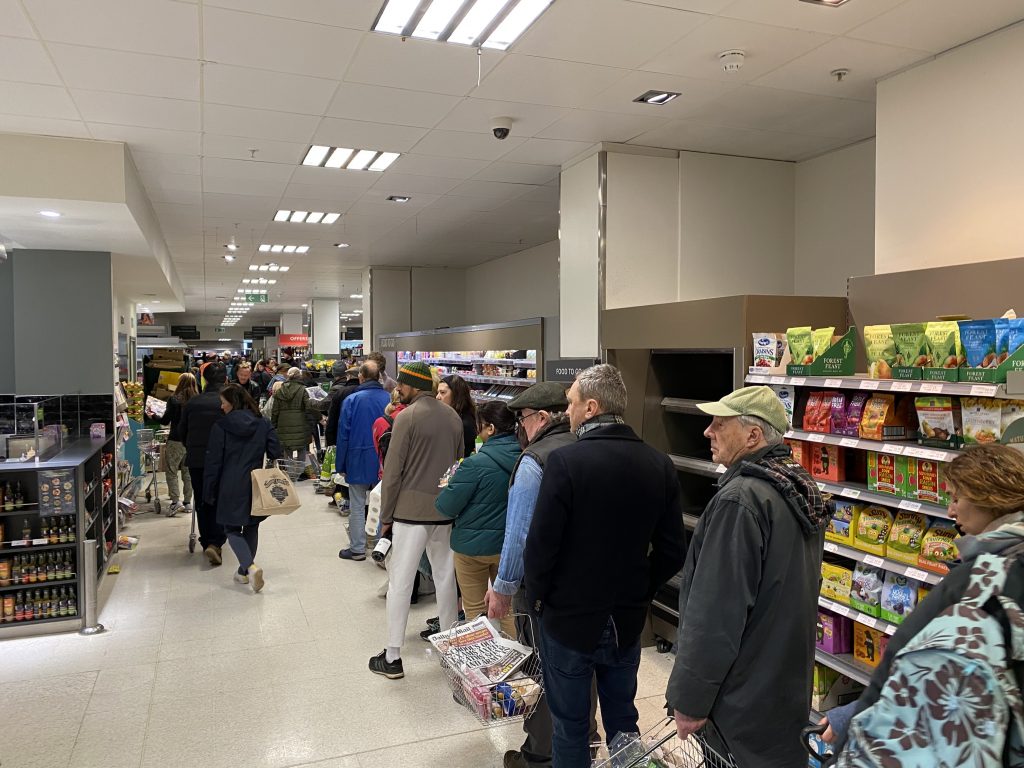Grocery store workers need more protections
2 min read
Essential worker's protections rely on customer's willingness to social distance. (@john_cameron | Unsplash)
By EMILY SEFF
Staff Writer
Essential grocery store workers could be easily protected, but they’re not. With the threat of the coronavirus still looming, CNN reports that there are 44 states currently under “stay at home orders.” Most of those orders allow for essential travel, including medical care and grocery shopping.
It is irresponsible and dangerous to refer to grocery store workers as essential without taking reasonable and easily-performed steps to protect them.
I work at a grocery store when I am home and have witnessed the lack of protection for this group of workers firsthand. There are 6-foot markers on the ground to promote social distancing, but they are between customers, not between customers and employees. It is also dangerous to not limit the number of people in places like grocery stores right now.
Many medical offices and doctors’ offices have switched to virtual consultations in order to limit face-to-face interactions as much as possible. While this mode of virtual communication is possible for non-life-threatening medical care and check-ins, for something like shopping for groceries this isn’t an option.
At my work, there are people at close range in tightly packed aisles, and many people standing in lines where it can be difficult to maintain a 6-foot distance apart from everyone given that people are moving around trying to shop. This goes against all health and safety guidelines from official authorities.
On March 15, the CDC recommended canceling events that would have a group of 10 or more people in attendance and staying inside as much as possible, which means only going in public for essential purposes. Using those guidelines, many grocery stores across the country have limited the number of customers allowed in the store at one time including major chains such as Walmart, Target and Kroger. While these policies are made in good faith, they are rarely enforced enough to protect the essential grocery workers who interact with possibly a hundred people every day.
Stores not taking proper care to protect their employees is one thing, but how the public behaves while out and around others is another issue. Despite signage encouraging social distancing as well as briefings from the governor calling for necessary travel only, many stores remain busy throughout the day, including mine. Some people are choosing to maintain their daily shopping habits instead of heeding government warnings, putting themselves, their families, and the families of every individual they interact with throughout the day at risk.
As the stay-in-place order continues for Virginia and many other states across the country, it is vital that nonessential travel and protective equipment recommendations are followed not only to protect yourself but others. Essential workers, including grocery employees, need to be protected in order for the stores to run properly and keep communities functioning. CDC recommended protection guidelines, for customers and employees alike, are easy to follow and could save lives.











